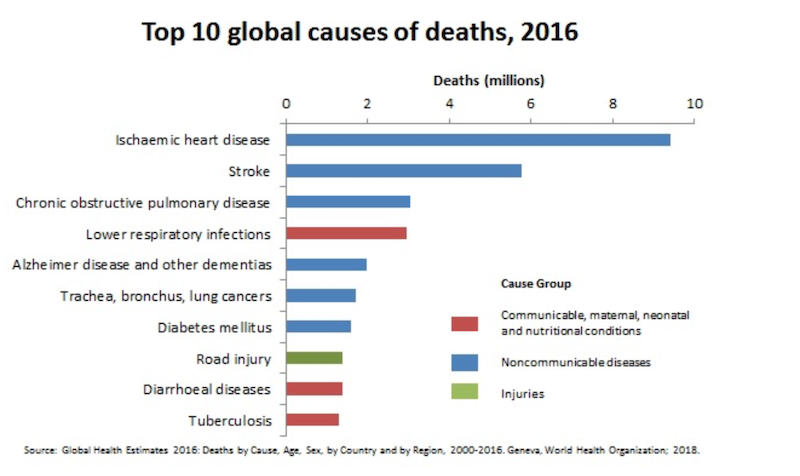I had another post planned originally, unfortunately,
Perhaps you already know what it is like. Or maybe it is still ahead of you, and maybe you have this moment long behind you. It doesn’t matter if you were surprised by it or slowly preparing for the moment, it always hurts the same.
What is death?
According to Wikipedia, this is a condition characterized by the cessation of signs of life, caused by irreversible maintenance of functional balance and the collapse of the internal organization of the system. The bodies of dead organisms begin to break down shortly after they die.
In this article, you will learn what it is like to lose a parent.
The very definition of death changes over time in connection with the
Dying.
Dying is a process that cannot be reduced to one moment, especially when dealing with a
- agony – a state of unstable balance between life and death, it consists of:
- reduced life (vita
reducta ) a condition in which weakening of physiological processes and activities of individual body systems occurs, - minimal life (vita minima) a state in which further deregulation of vital functions of systems occurs,
- apparent death, also called lethargy, is the period of minimal life, in which the vital functions of circulatory and respiratory systems are already so reduced that they are undetectable by a physician by normal physical methods (no pulse is detected, heart tones are not heard).
- clinical death this is a complete cessation of cardiovascular and respiratory function, which is however reversible to the
interlet period in which irreversible changes occur. interlet period the time in which two states occur simultaneously:- indirect life (via intermedia) i.e. the period in which you can still get specific reactions for that tissue from individual organs or tissues.
- biological death, which means. The cessation of all cell life processes.
In religious traditions, death is the natural end of the gift of life and the point of transition to another, yet unknown existence.
So much theory. In practice, it looks like there was a man and suddenly they is gone. It does not exist.
Only their body remained. A matter that quickly begins to break down. You don’t realize how quickly until you get the nightgown in which your mother died in the hospital. This fragrance will be with you all the time.
Depending on beliefs and traditions, this body is destroyed in various forms and with the help of various rites.
Dying today.
Dying is an inevitable but uncomfortable topic. You don’t think about death yourself because you live in a society that is afraid of it, avoids it, denies its existence, and makes it taboo.
In a society that makes great efforts to keep death as far as possible. In a society that locks old people in nursing homes so as not to confront its destiny and spends billions on cosmetics and rejuvenating treatments. Where the word death is rarely used, where people leave, pass away instead, and don’t die. In a society that plans and controls all kinds of activities except the one most likely to occur.
Apparently, 50% of the cost incurred for health seems to be spent in the last 6 months of life, trying at all costs to postpone the moment of death.
Like most other people, you would rather die painlessly, unexpectedly, preferably in a dream. Unfortunately, this type of death is extremely rare these days. So most likely you will die of chronic illness in a hospital surrounded by life support equipment. What are you betting on? Cancer or heart attack?

Considering the way death is treated today, you will be completely unprepared for the moment in both physical and spiritual terms.
If you are afraid of death all your life and avoid thinking about it, then when you finally meet with it you suffer more than necessary.
Unfortunately today nobody teaches us how to say goodbye to dying parents. Nobody talks about how to be with them in their last moments. Therefore, each of us is afraid of this moment. Nobody tells us what palliative medicine or hospice is. No one explains why it is important to leave in pace, reconciled with their own fate and death.
We often don’t recognize the last moments of our parent’s life deluded by the possibilities of modern medicine.
Modern medicine should ensure that we die peacefully. Meanwhile, the problem is that in practice doctors, if they realize that nothing can be done anymore avoid this topic. Instead of talking about what will happen, prepare the patient and family, they pretend to constantly try to save the patient’s life. They suggest further therapies, even knowing that their chances of success are negligible. The result is that both patients and their families expect that there is always something else that can be done. And this is not true. There comes a moment when nothing can be done. It is worth knowing when the moment is coming. As a result, the shock associated with the death of a
So how do you recognize the imminent death of your parent?
Listen to your intuition, watch your parent, pay attention to your dreams.
Experiencing the end of life, people often feel compelled to confront and solve unfinished issues, especially with family members. They may want to write a letter or email to someone or talk to someone in person. They may also feel, for example, the need to visit some childhood places. These experiences have healing powers and allow the dying to leave in peace.
Often, before dying, the dying person or their relatives are visited by deceased relatives or friends in dreams. These appearances help them leave and let go.
A dying person can also start talking about moving to another reality, start describing other worlds. Experience a sense of delight, joy, or wonder. They may also start to think deeply as if they were receiving the information they had not previously considered.
They often choose themselves for their own moment of death. And also the people with whom they want to remain in peace during their death. They know who is strong enough to experience this moment with them and protect those who are too weak for it. Some may choose to die alone.
However, death is not just a physical process. It is also a whole range of emotional processes as well as a spiritual experience.
The death of a parent is a very specific moment. In addition to causing sadness, which is a reaction to the loss and death, and affects your body, mind, and emotions causing:
- A series of physical reactions such as problems with appetite, sleep, insomnia, stomach upset, nausea, chest tightness, crying, tense muscles, low energy, anxiety, difficulty concentrating, fatigue, weight loss or weight gain, pains.
- Frequent thoughts on memories related to the deceased person, regrets, or thoughts about how your life would look like without that person.
- Emotions: sadness, anger, guilt, despair, relief, emptiness, that can only be expressed by the sound of silence, love, or hope.
It also transforms your identity.
No matter how old you are, suddenly you feel like a small defenseless child again. As long as your parent lives, you always subconsciously know that you have support, that they stands behind you and always supports you. Even if you don’t realize it they very presence of them gives you strength. You know that there is someone who always bets your back. Someone you can always count on. Someone who loves you unconditionally. When they
The experience of the death of a loved one can also lead to the discovery of spirituality and awaking.
The process of all these experiences associated with the death of a loved one is called mourning. This is a very individual experience. How you suffer depends on many factors, including your personality and coping style, life experience, faith, and how significant the loss was to you. The mourning process takes time and disappears gradually. You cannot force it or accelerate. It is important to be patient with yourself and let this process happen naturally.
This experience transforms you.
So take care of yourself in mourning:
- Challenge your feelings. Don’t suppress them within yourself. If you want to cry, cry, if you want to scream, then scream.
- Seek support from family or friends, and if you need to, consult a professional.
- Express your feelings in a tangible, creative way.
- Try to keep your hobbies and interests.
- Don’t let anyone tell you how to feel or tell yourself how to feel.
- Plan ahead regret triggers such as anniversaries, birthdays, holidays,
etc . - Take care of your healthy physical.
Source:
Death Wikipedia pl.wikipedia.org/wiki/Śmierć
Leading Causes of Death, National Center for Health Statistics, 2017 data for USA, www.cdc.gov/nchs/fastats/leading-causes-of-death.htm

